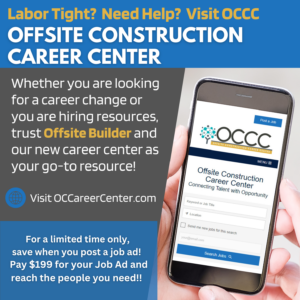An AI program can answer that question, even if the lead doesn’t provide a lot of data.
As I’ve noted in previous columns, artificial intelligence (AI) can streamline a lot of processes and solve a lot of problems for homebuilders. The one I want to talk about in this column is Lead Management.
Whether you sell to consumers or other businesses, lead management is a critical component of your profitability. If you do a poor job of marketing and have few leads, it is easy to focus your full attention on all those leads. If your marketing is going well and you have more leads than you can manage effectively, you need to decide which ones to contact first and which ones to let go.
If you were to summarize the problem it would be something like this: “I can’t get to all my leads fast enough and I wish I could focus on those that are most viable, most likely to buy.”
This problem can be a tough one for companies of all sizes and structures. It doesn’t matter if you have an online sales counselor or a team of salespeople managed by a sales manager, or if you’re a one-person show trying to do it all — you want to use your time effectively.
Chances are that most leads come to your company with very little information attached. Some might offer just a first name, a phone number and/or an email address, and this lack of depth makes it hard to validate which leads are hot and which ones are cold. Even if a lead comes in with a basic description of what the potential buyers are looking for, it can still be difficult to accurately judge how serious they are.
Having lots of leads is a good position to be in. But a better position to be in is to have lots of leads and to know which ones are more likely to buy. This is true whether you are selling custom offsite modular homes, multifamily units, subcontract services, or even land.
How does AI solve this problem? The answer is that you can leverage it to flesh out leads with more data, to score the fleshed-out leads according to your specification, and to do an analysis that gives back to you a report of who to call first and as soon as possible. This will dramatically increase your chances of closing deals.
As an example, consider a typical B2C situation where a builder sells homes direct to consumers. If you’re such a builder, then imagine getting a report every day that tells you which leads to prioritize, and why. The report would include significantly more data than the lead supplied, including the number of children they have, where they live, the type of work they do and much more.
With this added data you would be much more prepared when calling them. That’s because you would be better able to predict what they wanted to buy, what price they would likely spend and what options are important to them.
Would this information make you better able to position your company’s products and process in ways that match their needs and budget? Of course it would.

With Artificial Intelligence, you can do just that. The workflow goes something like this:
- A lead comes in from your website, or from some other digital source.
- The lead gets run through an AI platform, automatically, and with a predefined AI query customized for your company and your products.
- The AI Platform finds other data for that lead from a variety of sources, including social media and public governmental records. This data can help you build an accurate personal profile for each lead.
- The AI Platform then uses the data to score the lead based on your company’s defined criteria.
If the lead is out of state, the AI might give it a score of 50 out of 100; if it’s local, it might score a 90. If you’re a custom builder, an inquiry from a 24-year-old just out of college would likely score lower than one from a 60-year-old, established professional. If you’re selling 2-bedroom homes and the AI determines that the lead has five children, they will probably get a low score. If you’re selling 4-bedroom homes, the young family will score higher than the retired empty nesters.
If you had to hunt down this information manually, it would take a long time, and the score would be a subjective number based on your biases. But the AI system does it in seconds and it’s always accurate since it does not use emotional data.
With the AI-enhanced lead, your salespeople will know exactly whom to focus on. And the extra data will help them position the product, location, price point and options in ways that meet the needs of that particular homebuyer.
The same process works if you are an offsite manufacturer selling to builders, but of course the AI query and the fields of data you are looking for will differ. Ditto that if you are a developer or a participant in any other segment of the industry; the AI Query tool you create is customized for your lead type and the data points you are looking to find.
One fantastic truth about AI platforms is they can accept data from multiple sources simultaneously and do the analysis based on data from all those sources. Humans can’t effectively do that and even if the human thought they could, it would take a very long time and, as I said, would likely not be accurate. AI does it in seconds.
This doesn’t have to be expensive. Since you are paying by the compute second, the solution might cost pennies per lead. To make the service profitable, the AI provider will typically charge a monthly minimum, and will only charge you for overages above some predetermined amount of use time. (I know companies that run several leads per day through AI at a daily cost of about $2.)
Solutions like this are addictive. In fact, once you see the extreme ROI, you will start looking for other problems, roadblocks, or challenges that AI can help solve.
Erik Cofield is a business process and strategy consultant for residential construction companies that provide products and services to offsite, modular, custom and production builders. He has also provided insight to builders of all types and sizes for nearly 30 years. He has 3 books available on Amazon. He may be contacted at [email protected].







